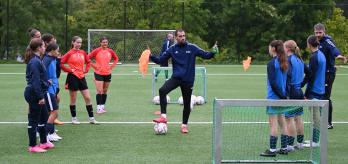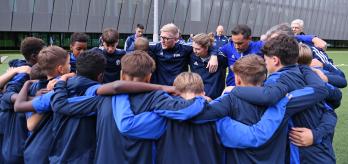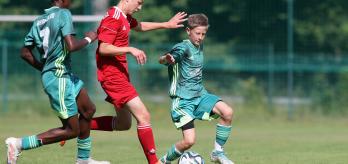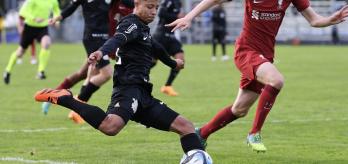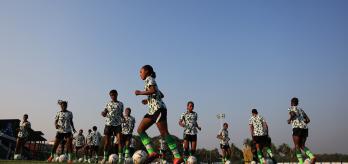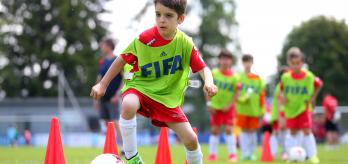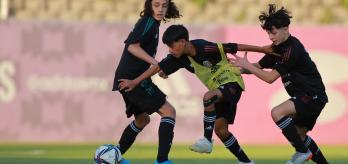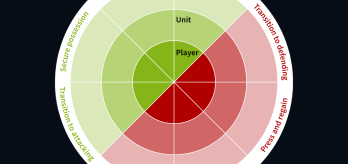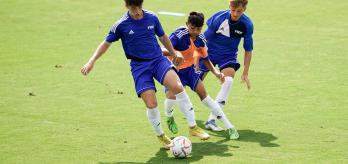Professor Joe Baker is Head of the Lifespan Performance Lab at York University, Toronto. In this presentation he attempts to define what we mean by "early specialisation" before discussing how practitioners might apply current scientific research to develop the next generation of players and unlock their full potential. Following the presentation, Professor Baker takes part in a Q&A hosted by Dr Paul Bradley of FIFA.
Break down and define the term "early specialisation," set out the current state of research, and make practical recommendations as to the action coaches might take on the basis of that research.
Research in this specific area is still relatively scarce, and defining "early specialisation" is a particular challenge for researchers. More and better scientific work still needs to be conducted to advance our understanding of this topic.
Go beyond textbook definitions and consensus statements, and treat your players as individuals. A "one-size-fits all" approach rarely works.
Watch presentation
Read summary
Part 1: What do we mean by early specialisation?
Defining "early specialisation" is not an easy task. Research in this area is still in its infancy and therefore still evolving. Moreover, the scientific discussion on this issue revolves around four distinct questions, specifically, when an athlete should take up a sport, when they should start specialising in that sport, when they should start engaging in high-intensity training, and when they should start competing. As all athletes are unique, employing a one-dimensional, "one-size-fits-all" approach could limit the development of young players.
There are other important questions still to be answered, too. For instance, current studies do not tell us whether you need to be engaged in organised, adult-led training to be considered a specialist, or whether you can still be considered a specialist athlete if you also "specialise" in a non-sports-related field, such as music. This makes it very difficult to formulate policy recommendations.
Part 2: Implications for coaches and practitioners
In the second half of his presentation, Professor Baker discusses the implications of the scientific research in this area for coaches. His key message is that letting athletes play in an environment that maintains their motivation, enjoyment and engagement is more important than structure. Athletes may specialise at different times depending on their circumstances, but the main priority should always be the health and safety of the athlete.
A second key message for coaches is that the science does not have all the answers as to when to introduce specific types of training. This means it is down to each coach to judge when it is appropriate to do so on an individual basis. When making these decisions, coaches would be wise to consider how they can provide players with opportunities to develop throughout their development pathway, as this will maintain their motivation and help them realise their full potential.
Q&A
01:11
How big of a problem is early specialisation in the development of footballers?
03:16
Is specialisation always a problem when developing players?
05:30
Is diversification always a good thing for young footballers?
09:04
What is the best way of managing the risks of early specialisation in young players?
11:40
Why do developing footballers feel the need to specialise?
13:40
Are young players conscious of the word 'specialisation', or are they just conscious of a joy and a love of the sport?
14:42
What could practitioners do to optimise their long-term athlete development plans for the players they are working with?
15:52
Can you provide some examples of how important context is for the development of young players?
18:22
What steps will we need to take to develop the next generation of players? What is on the horizon in terms of research?
20:35
How have you found the clubs you have dealt with? How receptive have they been to the research you have published?
22:38
If you could give a coach some practical advice on the simplest and most effective practices for developing players, what would the advice be?








